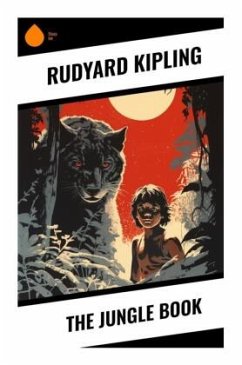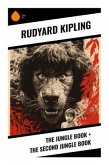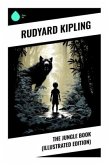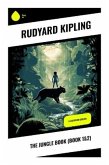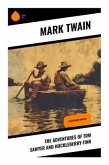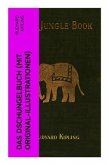Rudyard Kipling's "The Jungle Book" is an enchanting collection of stories that masterfully weaves together themes of nature, identity, and colonial dynamics within the framework of a lush Indian jungle. Through vivid prose and anthropomorphic characters, including the beloved Mowgli, Baloo, and Shere Khan, Kipling explores the delicate balance between civilization and the wild. His narrative style is rich with poetic language and incorporates elements of fable and folklore, making it a seminal text of the late Victorian period, encapsulating both moral lessons and the complexities of British imperialism. Kipling, born in colonial India and later immersed in British society, drew on his diverse experiences to craft this iconic work. His childhood exposure to Indian culture and the natural world profoundly influenced his writing. Additionally, Kipling's role as a journalist and observer of the British Empire provided him insightful perspectives on the relationships between colonizers and the colonies, encapsulated through the allegorical lens of animal characters. "The Jungle Book" is highly recommended for readers seeking a rich exploration of cultural intersections and the human condition, all while being entertained by Kipling's imaginative storytelling. Its timeless tales resonate with both young and adult audiences, offering profound insights into nature and the primal instincts that define us.
Bitte wählen Sie Ihr Anliegen aus.
Rechnungen
Retourenschein anfordern
Bestellstatus
Storno

